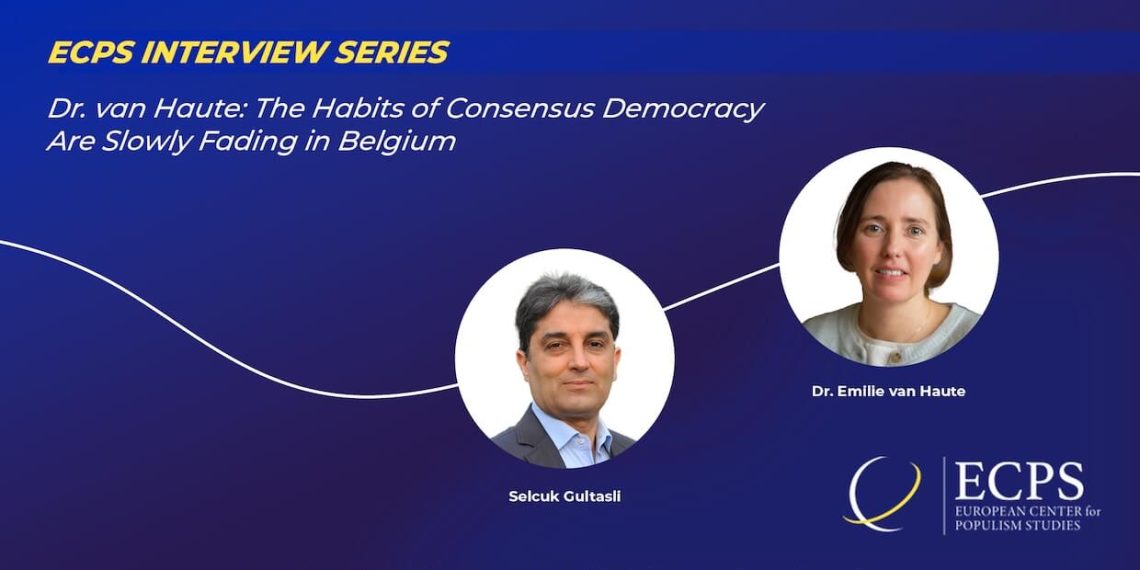Belgium’s long-standing reputation as a consociational democracy—marked by power-sharing, compromise, and consensus-building—is under strain. According to Dr. Emilie van Haute, the country’s political landscape has undergone a fundamental transformation, with growing polarization and the increasing influence of populist radical parties. In this compelling interview with the ECPS, Dr. van Haute examines the rise of populism on both the left and right, the impact of linguistic divisions, and how mainstream parties are adapting to radical competition. She provides valuable insights into Belgium’s shifting democracy and the challenges ahead.
Interview by Selcuk Gultasli
Belgium has long been regarded as a model of consociational democracy, characterized by political compromise, power-sharing, and consensus-building. However, according to Dr. Emilie van Haute, Associate Professor of Political Science and Department Chair at SciencePo ULB, and researcher at Cevipol, this perception no longer reflects reality. “The habits of consensus democracy are slowly fading,” she warns. “That poses a significant challenge for future government formation and the stability of coalition governments.”
In an insightful interview with the European Center for Populism Studies (ECPS), Dr. van Haute explores the shifting dynamics of Belgian politics, particularly the rise of populist radical parties on both the left and the right. She highlights how political parties like Vlaams Belang (VB) and Parti du Travail de Belgique (PTB–PVDA) have capitalized on discontent and distrust in mainstream political institutions. “These are voters who feel alienated from the political system,” she explains. “They opt for radical parties not randomly, but because these parties align with their political priorities.”
Belgium’s linguistic and regional divisions further shape this political landscape. In Flanders, Vlaams Belang’s ethno-regionalist stance has gained traction by advocating for Flemish autonomy and opposing so-called “solidarity transfers” to the French-speaking south. In contrast, in French-speaking Belgium, populist momentum has been driven by the radical left, which prioritizes economic redistribution and national solidarity. These diverging political priorities contribute to a growing polarization within the country.
Mainstream parties have not remained immune to these shifts. As Dr. van Haute notes, they have increasingly adopted populist rhetoric and strategies in response to radical party successes. “Mimicking the radical right legitimizes their positions and facilitates their electoral success,” she observes, citing the New Flemish Alliance (N-VA) and the French-speaking Liberal Party (MR) as examples of this trend.
Looking ahead, Dr. van Haute sees Belgium at a crossroads. With growing affective polarization, the erosion of consensus politics, and populist parties gaining ground, the country faces an uncertain future. “It is difficult to govern with multiple coalition partners when parties are constantly engaging in antagonistic politics,” she warns.
In this thought-provoking discussion, Dr. van Haute dissects these pressing political challenges and reflects on the implications of populism, nationalism, and polarization in Belgium’s evolving democracy.


